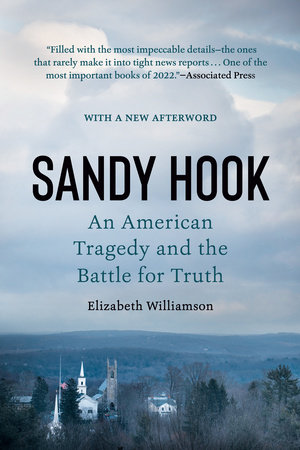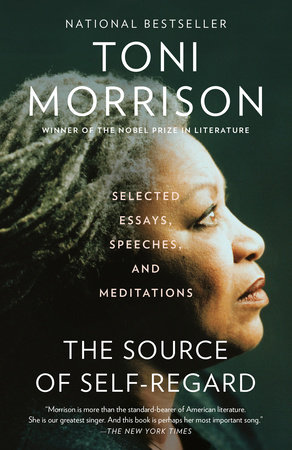More and more frequently my wife Mary and I are asked about our experience with the plant-based lifestyle we began together several years ago, and how new people can get started. Here are some of our best recommendations, collected and organized from a patchwork of conversations with our friends who have been interested in coming along with us.
We’ve included resources like our go-to cookbooks and websites; documentary movies and series that helped us with and still reinforce our decisions; a short list of some of our favorite plant-based brands and where we source our food. We’re not trying to be comprehensive here, only to provide a solid foundation for anyone who is interested in making the move.
Before we begin, let’s get a few important things out of the way:
-
- While there are a host of reasons to transition to a plant-based diet, from personal health outcomes to the ethical treatment of animals and especially to help reduce climate change, we’re not going to cover those here because there are plenty of other places to find your own why and to feel comfortable with your decision (including via some of the videos below). For us it’s all of the above. In the end it doesn’t matter which is more or less important to you, it’s that you decided to explore the change.
- We’re not medical professionals and we are not making any evaluation or promises or claims about who can support and sustain a plant-based diet or how it will affect anyone specifically. We can tell you that in our experience we feel more energetic, lighter, younger and happier; we can see the very real changes in our blood panels and body compositions; yes, we get more than enough protein, probably more than most people; and we’ve even run marathons powered completely by plants. Of course your mileage may vary.
- Lifestyle changes like this are a journey, and there can be several stops along the way if you prefer your change to be gradual rather than sudden. Whether it’s first by simply reducing meat consumption by cutting it out a couple of days a week, to becoming vegetarian by completely eliminating meat, to becoming fully vegan (to whatever degree, and there are several levels like belts in karate) by also eliminating dairy, there’s a place for you to be successful and happy along the spectrum. We’re still evolving ourselves, and definitions are less important to us than what we’re able to practice every day. Btw, yes, seafood is meat, but many people are more than comfortable in pescatarian mode; we no longer are.
- Situations where a plant-based option is not available to us are very rare these days, even out in public as more and more restaurants and venues offer valid and authentic vegetarian and vegan meals. But sometimes it happens that we can’t get what we’d like, and in those instances, our rules of engagement are 1) don’t be the problem, and 2) don’t go hungry. We can usually cobble something together out of sides or small plates, and if we have to forego protein for one meal it’s not the end of the world. No sense or satisfaction being militant.
- We’ve found that the quickest path to derailment is to try to make meals that replicate the meat and dairy you’re leaving behind. A plant-based burger for convenience every once in a while is fine, but not only are many plant-based equivalents themselves heavily-processed foods, they are open doors to regression or, if you want to look at it that way, cheating. Make the best of your fresh start by making friends with the concept of fresh whole foods.
Okay, on to the recommendations!
Cookbooks and websites
We love these first three resources as much as the changes they’ve brought to us, and they helped us in our decision to try plant-based as much as they are now the foundation of keeping us there. So much more than collections of recipes: the refreshing and sensible advice about how to start your transition, how to adapt your pantry and kitchen, how to change your shopping habits, how to swap out ingredients, how to be a plant-based badass, all of it is worth reading over and over again. And we do.
By far our favorite cookbook series is from the team at Bad*Manners (formerly Thug Kitchen). They are simply amazing, and their cookbooks of simple and delicious recipes are always the first we reach for. The original and best is Bad*Manners: The Official Cookbook, and if you do nothing else from this post, get this book: it is life-changing and you can find it at any bookstore, both online and in the real world. But we’re pretty sure you’ll end up getting them all: Brave New Meal, Hungry As Hell, Party Grub (those nachos!), and Fast As Fuck. A few months with these and your plant-based skills will be outstanding. Your profanity will be next level too. Their website has 20 pages of great recipe listings, along with a newsletter and a podcast, but there’s nothing like having these books in your hands and propped up on your kitchen counter. You can also follow along on almost all social media platforms.

Equally great but in a more understated way is the team at Forks Over Knives, which has produced a range of first-rate material, all referenced on their website. Their OG cookbook, The Forks Over Knives Plan, is a 4-week meal-by-meal makeover to help you transition and continue far beyond. We’re just starting to work through their newer cookbook, Flavor!, with good results. They offer a free Ultimate Beginner’s Guide to a Whole-Food Plant-Based Diet, available as a PDF for download. And the Forks Over Knives documentary film is a classic; more on that below. Also available to follow on most social media platforms.

We’ve found the best online resource to be VegNews. They describe themselves as “Your Ultimate Source for All Things Vegan” and they come pretty close. Recipes of course, lots of tips, industry news, editor’s picks, podcasts, and lists lists and more lists. Their gateway feature is How to Go Vegan: A Beginner’s Guide to Eating Plant-Based, an explainer and FAQ of the most common questions, along with a dozen other useful links. Like the others, you can follow VegNews on most social media platforms.

If you start with those 3 resources, you will be busy and satisfied for a long long time. But wait, there’s more. There’s no shortage of vegan or vegetarian cooking help and we can’t list them all here and it’s fun to go exploring online and in your local bookstore. Here are a few other resources worth special mention:
Although they are not all intended to be exclusively plant-based, and some do include recipes calling for meat and dairy, there are enough vegan, vegetarian, and easily-adaptable Mediterranean-style recipes in British chef Yotan Ottolenghi‘s cookbook series to occupy some substantial space on our bookshelves and in our meal plans. Sometimes you have to go digging, sometimes you need to make creative swaps, but there is absolute gold here. We have five of them—yes, five (links are to UK site but all are readily available in US). Easy places to start are Plenty, Plenty More and Flavor, his three cookbooks directed at vegetarians. Our favorite is Jerusalem, with dozens of incredibly delicious vegan-adaptable dishes. Simple is another excellent choice. He also has dozens of free recipes rotating seasonally on his website. Another must-follow on social media, especially on Instagram.

Wicked Kitchen is better known as a prepared food company, but we are going to spend more time with their cookbook this year, The Wicked Healthy Cookbook. Lots of recipes on the website and on their social media channels. And we are loooooong overdue in making their StickyBBQ Texas-Style Seitan Brisket—can’t wait to fire up the grill when the weather breaks.
And we are especially looking forward to the 2025 release of Miyoko’s Creamery founder Miyoko Schinner‘s new book on vegan cheese. She’s no longer associated with the company she founded (still great stuff, see Brands below), so for now we’ll follow along on her Instagram.
Like cookbooks, there is no shortage of social media influencers to follow. Some of our favorites are Richa Hingle (@veganricha), Lisa Myaf (@lisamyaf), Timothy Pakron (@mississippivegan), and the incredible Hannah Che (@hannahche), who also has cookbooks, including The Vegan Chinese Kitchen, but it’s her toasts that we treasure. There are so many others.

And last, because these vegan meat recipes are not easy, from prime plant-based meat and cheese company Field Roast (see Brands below), Field Roast: 101 Artisanal Vegan Meat Recipes to Cook, Share & Savor. We remain determined.
Documentary films and Series
We may all have come across the types of vegan documentaries that promise, if you watch them, that you’ll never eat meat again, and they’re right. We’ve listed a few at the bottom of this section, but we’d rather feature three that offer more positive messaging while still being honest about what happens before and after, and one series that wraps a more holistic approach around plant-based nutrition. There are a few hours of watching here, but do you know what? Less than 10 minutes watching these trailers might be enough to get anyone started.
Forks Over Knives Documentary (Amazon Prime or FOK website)
The basic whys and hows of a whole foods plant-based diet. Start here.
You Are What You Eat (Netflix)
A 2024 mini-series that uses twins to examine the even short-term health benefits of a vegan diet, along with some other foundational reasons for making the conversion. Four 45-minute episodes.
The Game Changers (Netflix)
Centers on maximizing athletic performance, but really a vegan showcase for any active (or would-be active) person.
Live to 100: Secrets of the Blue Zones (Netflix)
Yes Dan Buettner brings along a bit of pop health culture, and the aim isn’t really to live to 100: it’s about being capable and alert well into older age via a holistic approach to health and activity and attitude. The magic of this series is lighting up how your new vegan diet can be wrapped in other positive, complementary approaches that amplify everything you do. Four episodes, each less than 45 minutes.
If you’d rather be outraged, scared or disgusted into it, you could try Cowspiracy, Seaspiracy, Earthlings, and Dominion (links to trailers only). Warning: we’ve never been able to sit through one of these. If you want to skip right to the hard part, watch Dominion.
Brands
Rather than make a list of all the new brands we’ve tried and use on a regular basis, we will defer to the cookbooks above which offer great education and recommendations on different products (what is Nooch?). Instead, we’ll offer just a few brands in a few categories where most people have some difficulty transitioning and choosing good replacements. Again, we’re not trying to replicate foods exactly, but if you need some advice while exploring the shelves or food cases, and you’d like to know what about this and what about that, here’s where you might want to start in sorting through what has become a landslide of choices. Btw the websites for these brands are full of free and creative recipes using their products.
Milk
Our everyday milk choice is unsweetened original Ripple plant-based milk, made from pea protein. It’s satisfying and delicious, and we use it in everything from recipes to our cereal. For steamed coffee drinks, we shift to Califa Farms Oat Barista Blend and Califa Farms Unsweetened Almond Blend — these both froth up really well even on home machines.
Eggs
Most cookbooks will give you several options for egg replacements in recipes, from flaxseed or chia mixtures to avocado, and they work pretty well. But if you want to use an easy equivalent, Just Egg is a great answer. Made from mung beans, these products are packed with protein and taste and cook up like real eggs. The pourable product is great for scrambles, and the folded product is excellent for sandwiches of all kinds especially breakfast sandwiches.
Butter & Sour Cream
While there are several great choices in this category, Miyoko’s Creamery butters are outstanding. Taste, texture, cooking, baking, you won’t miss the real thing. At all. Kite Hill’s Sour Cream Alternative is solid.
Cheese
Most people cite cheese at the reason they don’t go full vegan. We understand, and we know it’s hard—you’re not going to replace a French cheese board anytime soon, although there will come a time as artisanal vegan cheese production is very much on the upswing. Unfortunately not much has made its way to supermarkets yet, but that doesn’t mean there aren’t great products to use. Miyoko’s Creamery again comes in as an outstanding choice: their artisan cheeses, when you can find them, are excellent; their cheese spreads are easier to find and are guest-worthy. Mozzarella? Say no more: you can make a really nice caprese with their classic mozzarella, and we are looking forward to using their new pourable mozzarella product for pizzas. For cream cheese, it’s a toss up between Miyoko’s Cream Cheese collection and Kite Hill’s cream cheeses. We do prefer Kite Hill’s Ricotta Alternative. Slices and shreds can be a mixed bag, as most are serviceable and none really stand out except for Field Roast’s Chao Creamery products—we can make an amazing 4-cheese grilled cheese from those.
Meat
Lots to choose from here, and the usual suspects are fine: can’t go wrong with Beyond, Impossible, Gardein, Amy’s Kitchen, others. Most likely you’ll sample quite a few of these both in your own kitchen and out of your home, and they’ll be interchangeable. Even in this constellation there are some standouts. In addition to its cheeses, Field Roast has an amazing line-up of meat products, from sausages to burgers to appetizers to roasts to breakfast sandwiches. One we can’t live without is their Italian Garlic and Fennel sausage, which we mostly use for tomato sauce dishes, but also in tacos and bowls. Beyond’s Brats are a staple of our summer, and we prefer their Breakfast Sausage Classic Links to the others too. Abbot’s Butcher Chorizo is fantastic. We’re still mourning The Very Good Butchers, which had an awesome lineup until they expanded too quickly; if they ever make a comeback and you see their products online or in stores, go for it.
Ice Cream & Yogurt
Also a matter of experimenting from the waterfall of brands, but in this arena we prefer Ben & Jerry’s Dairy Non-Dairy Pints made from oat milk, So Delicious ice cream sandwiches bars made from either almond or coconut milk, and Kite Hill’s Greek Style Yogurt, add your own fruit.
Frozen entrees
Yes we try to avoid these as much as we can, but there’s always a rushed night and we usually have some in the freezer. Solid brands are Wicked Kitchen, Purple Carrot, Sweet Earth, and Amy’s Kitchen.
How will your shopping habits change? Just remember that you’re always better off in the produce section than the processed foods aisles and you’ll be fine. Everything we’ve mentioned here is available to us in our local supermarkets, and most big chains now have a decent vegan or vegetarian section. Our first stop is almost always Whole Foods. Trader Joe’s has a good lineup of vegan foods, most under their own label (VegNews has some helpful guides to TJ). Target is getting surprisingly strong, especially in the prepared meals department.
The final recommendation we have is about sourcing produce. Farmers markets and local farms, of course, are great. Nothing is better than your own backyard or container garden if you have room. The last few years we’ve upped our farm-to-table game by growing a good amount of our produce indoors a few feet from our kitchen in a hydroponic garden from Rise Gardens. Even in the middle of winter we have fresh basil, lettuces, tomatoes without leaving the house. Not for everyone, although even a small countertop garden is more than worthwhile.
Wrap up
Well that seems to be quite enough for one post for now. If you’ve read this far, thank you, and we hope we’ve provided some useful information to get you going to where you want to be, or, something to think about if you’re still not sure. We’re likely be making edits to this post over time as it will be our standard evergreen response to friends who ask us about it all. If you have questions or suggestions yourself, please leave them in the comments below–we’ll try our best to find some answers!
























































